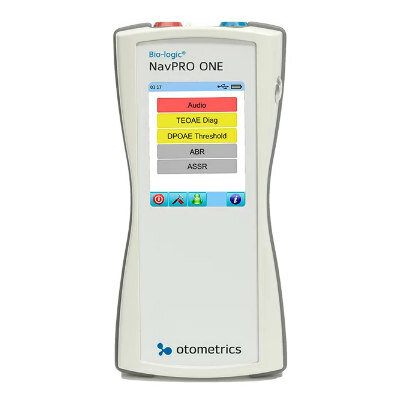Investigational Drug Aids Some Leukemia Patients
|
By HospiMedica staff writers Posted on 12 Dec 2000 |
Studies of patients with a common form of leukemia show that nearly 30% had no traces of the disease following treatment with a new investigational drug, STI571 (Glivec). The study data were presented at the annual meeting of The American Society of Hematology in San Francisco (CA, USA).
The once-daily oral drug belongs to a new class of antiproliferative agents called signal transduction inhibitors (STIs), which have shown the potential to interfere with intracellular signaling pathways that have been implicated in tumor development. The drug is molecularly targeted to the specific chromosomal abnormality, called the Philadelphia chromosome, in chronic myeloid leukemia (CML). CML progresses through three distinct phases: the chronic phase (three to four years), the accelerated phase (three to nine months), and blast crisis (three to six months). As the patient moves through these stages, the disease usually becomes increasingly refractory to therapy.
In a chronic phase study of 388 patients who had completed three months of therapy, preliminary data showed an overall response of 37%, of which 13% were complete and 23% were major. In an accelerated phase study of 154 patients treated for four weeks, the overall response rate was 78%, which included 22 patients who have achieved a complete response. In a blast crisis phase study, the overall response rates for 50 previously untreated patients at four weeks were 48%.
The new drug is the product of Novartis, AG (Basel, Switzerland). The company believes the drug will see future use as an alternative to bone marrow transplants and alpha-interferon.
Related Links:
Novartis
The once-daily oral drug belongs to a new class of antiproliferative agents called signal transduction inhibitors (STIs), which have shown the potential to interfere with intracellular signaling pathways that have been implicated in tumor development. The drug is molecularly targeted to the specific chromosomal abnormality, called the Philadelphia chromosome, in chronic myeloid leukemia (CML). CML progresses through three distinct phases: the chronic phase (three to four years), the accelerated phase (three to nine months), and blast crisis (three to six months). As the patient moves through these stages, the disease usually becomes increasingly refractory to therapy.
In a chronic phase study of 388 patients who had completed three months of therapy, preliminary data showed an overall response of 37%, of which 13% were complete and 23% were major. In an accelerated phase study of 154 patients treated for four weeks, the overall response rate was 78%, which included 22 patients who have achieved a complete response. In a blast crisis phase study, the overall response rates for 50 previously untreated patients at four weeks were 48%.
The new drug is the product of Novartis, AG (Basel, Switzerland). The company believes the drug will see future use as an alternative to bone marrow transplants and alpha-interferon.
Related Links:
Novartis
Latest Patient Care News
- Portable Biosensor Platform to Reduce Hospital-Acquired Infections
- First-Of-Its-Kind Portable Germicidal Light Technology Disinfects High-Touch Clinical Surfaces in Seconds
- Surgical Capacity Optimization Solution Helps Hospitals Boost OR Utilization

- Game-Changing Innovation in Surgical Instrument Sterilization Significantly Improves OR Throughput
- Next Gen ICU Bed to Help Address Complex Critical Care Needs
- Groundbreaking AI-Powered UV-C Disinfection Technology Redefines Infection Control Landscape
- Clean Hospitals Can Reduce Antibiotic Resistance, Save Lives
- Smart Hospital Beds Improve Accuracy of Medical Diagnosis
- New Fast Endoscope Drying System Improves Productivity and Traceability
- World’s First Automated Endoscope Cleaner Fights Antimicrobial Resistance
- Portable High-Capacity Digital Stretcher Scales Provide Precision Weighing for Patients in ER
- Portable Clinical Scale with Remote Indicator Allows for Flexible Patient Weighing Use
- Innovative and Highly Customizable Medical Carts Offer Unlimited Configuration Possibilities
- Biomolecular Wound Healing Film Adheres to Sensitive Tissue and Releases Active Ingredients
- Wearable Health Tech Could Measure Gases Released From Skin to Monitor Metabolic Diseases
- Wearable Cardioverter Defibrillator System Protects Patients at Risk of Sudden Cardiac Arrest
Channels
Critical Care
view channel
Ingestible Smart Capsule for Chemical Sensing in the Gut Moves Closer to Market
Intestinal gases are associated with several health conditions, including colon cancer, irritable bowel syndrome, and inflammatory bowel disease, and they have the potential to serve as crucial biomarkers... Read moreNovel Cannula Delivery System Enables Targeted Delivery of Imaging Agents and Drugs
Multiphoton microscopy has become an invaluable tool in neuroscience, allowing researchers to observe brain activity in real time with high-resolution imaging. A crucial aspect of many multiphoton microscopy... Read more
Novel Intrabronchial Method Delivers Cell Therapies in Critically Ill Patients on External Lung Support
Until now, administering cell therapies to patients on extracorporeal membrane oxygenation (ECMO)—a life-support system typically used for severe lung failure—has been nearly impossible.... Read moreSurgical Techniques
view channel
Pioneering Sutureless Coronary Bypass Technology to Eliminate Open-Chest Procedures
In patients with coronary artery disease, certain blood vessels may be narrowed or blocked, requiring a stent or a bypass (also known as diversion) to restore blood flow to the heart. Bypass surgeries... Read more
Intravascular Imaging for Guiding Stent Implantation Ensures Safer Stenting Procedures
Patients diagnosed with coronary artery disease, which is caused by plaque accumulation within the arteries leading to chest pain, shortness of breath, and potential heart attacks, frequently undergo percutaneous... Read more
World's First AI Surgical Guidance Platform Allows Surgeons to Measure Success in Real-Time
Surgeons have always faced challenges in measuring their progress toward surgical goals during procedures. Traditionally, obtaining measurements required stepping out of the sterile environment to perform... Read moreHealth IT
view channel
Printable Molecule-Selective Nanoparticles Enable Mass Production of Wearable Biosensors
The future of medicine is likely to focus on the personalization of healthcare—understanding exactly what an individual requires and delivering the appropriate combination of nutrients, metabolites, and... Read more
Smartwatches Could Detect Congestive Heart Failure
Diagnosing congestive heart failure (CHF) typically requires expensive and time-consuming imaging techniques like echocardiography, also known as cardiac ultrasound. Previously, detecting CHF by analyzing... Read moreBusiness
view channel
Expanded Collaboration to Transform OR Technology Through AI and Automation
The expansion of an existing collaboration between three leading companies aims to develop artificial intelligence (AI)-driven solutions for smart operating rooms with sophisticated monitoring and automation.... Read more

















